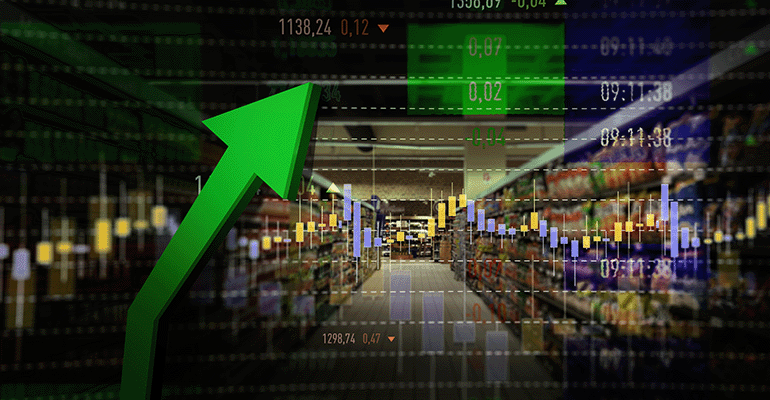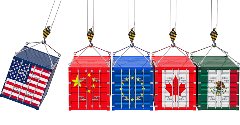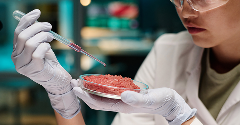News
Unilever India’s price hikes aim to counter bottom line challenges
3 Dec 2024Unilever India will implement “calibrated price increases” after third quarter results underscored some challenging areas in the business’ performance.

While the results showed that Hindustan Unilever India’s (HUL) Q3 2024 performance registered a 2% increase in underlying sales, to reach $1.8 billion, commodity price pressures meant that the company’s profit declined by 4% to reach $310 million after tax.
A deeper dive on the numbers shows that HUL’s food and refreshment division was a weak spot, with revenues down by 2% on a low-single digit volume decline.
Commodity price increases hit food and beverage operations
In an earnings call that followed on from the Q3 results announcement, the company highlighted areas of its food and beverage business that have come under increased pressure due to higher commodity prices, which, combined with the muted volume growth, led to the decision to raise prices. Currently food and beverage accounts for approximately a quarter of the company’s annual revenues.
“Following a prolonged period of benign commodity prices in this quarter, crude palm oil and tea experienced inflation of 10% and 25% year-on-year,” said Rohit Jawa, HUL CEO and managing director during the earnings call.
“Given our assessment, that this price increase is here to stay, we are now taking calibrated price increases. While crude oil remained benign during the quarter, there has been recent volatility in prices owing to geopolitical tensions. We remain vigilant and are watchful of any price fluctuations that seem to persist.”
While tea commodity prices have been hit by climate extremes impacting crops and geopolitical instability, rising palm oil prices have been pinned to increased market competition and shifts in demand for edible oils.
HUL continues its market leadership in tea
Although the performance of the company’s beauty & personal care and home care segments continue to perform relatively well – accounting for almost two thirds of total revenues – the food and refreshments side of the business has been underperforming during this financial year, in the face of rising costs.
Despite the commodity price challenges, the company continues to have a dominant position for both value and market size for the all-important teas category. Meanwhile, a strong performance in coffee has served to counteract the weakness in tea.
“Premium segment led by green and functional tea continued to maintain its growth momentum, while the category UVG remained muted as consumer downgradation to loose tea persisted,” said Ritesh Tiwari, HUL’s chief finance officer.
“With tea commodity witnessing unprecedented inflation in recent months, we expect this trend of downgradation to gradually reverse. Coffee delivered double-digit growth, led by strong performance in organised trade.”
Price hikes likely to make the food space all the more challenging
While the beverage space has some distinct areas of resilience and stronger performance, the company said that overall food delivered low single-digit volume growth, putting it behind the performance of the company’s other business divisions.
To counteract things, HUL has earmarked the nutritional drinks space to focus on to cultivating higher growth – with a specific focus on diabetic nutritional drinks.
HUL’s Diabetes Plus portfolio falls under the nutritional drinks banner and has been singled out as one of the fastest growing brands in nutritional drinks, consistently delivering double-digit growth.
Nutritional drinks business has potential for further growth
The company says it has recently added to the nutritional drinks portfolio with a new flavour for the Diabetes Plus range, but during the call it was stressed that the nutritional drinks category is still not fulfilling its potential.
“While our market development actions in Nutrition Drink segment has resulted in continued market share and penetration gains, there's still work to be done to drive consumption. We are mobilising our efforts in this direction,” said Tiwari.
“For instance, recognising the preference for sachet format, we're now offering an elevated cup experience for all Horlicks sachet consumers with much higher milk solids in the product.”
Related news

Future F&B flavours favour exploration and explosive taste profiles
25 Mar 2025
Exploration and experimentation will define the future of flavour, according to Mintel, as consumers seek out taste profiles and textures that offer an adventurous eating experience.
Read more
Partnership plans to scale cultivated meat production
21 Mar 2025
Food technology innovator Ever After Foods (EAF) and multinational food leader Bühler are striving to overcome hurdles to access and accelerate the development of cultivated meat.
Read more
Global consumers enjoy food less and perceive it as less healthy
20 Mar 2025
Enjoyment of food and its perceived healthiness is dwindling among most global populations, according to findings from Gallup and Ando Foundation/Nissin Food Products.
Read more
Seafood set to ‘dethrone’ poultry as protein growth king
19 Mar 2025
Seafood is poised to surpass poultry as the leading contributor to global protein supply growth this year, according to Rabobank’s latest protein outlook.
Read more
Tariff volatility leaves food manufacturers in limbo
11 Mar 2025
Rapid US trade policy shifts and tariff escalations are creating uncertainty for food manufacturers and ingredient suppliers.
Read more
F&B industry hit with fresh greenwashing claims
26 Feb 2025
The food and beverage (F&B) industry is under fresh scrutiny amid claims of greenwashing, with Arla the latest company in the firing line.
Read more
Protein diversification: A massive missed market?
20 Feb 2025
Germany and the UK could be missing out on the massive market for alternative meats and proteins, with one new coalition calling for an end to the “steak-tofu struggle”.
Read more
Have scientists discovered a new tool to measure UPFs?
19 Feb 2025
Researchers have developed a new scoring system and database, compiling over 50,000 food items, of which over 1,000 are classified as ultra-processed.
Read more
China ramps up cultivated meat research with new innovation base
18 Feb 2025
China has opened its first fermentation and cultivated meat research centre in Beijing.
Read more
Most consumers lack trust in AI, but supplement users are ready to embrace the technology
14 Feb 2025
A survey of UK and US consumers found that most supplement users are willing to let AI make decisions on their behalf, but they also demand greater transparency.
Read more